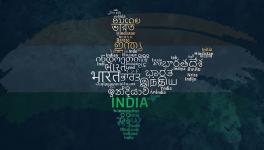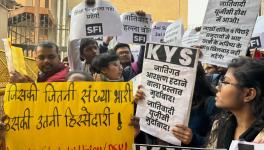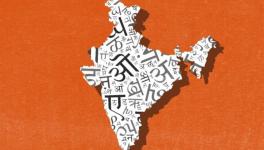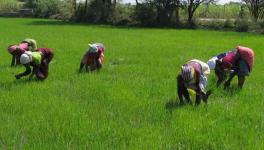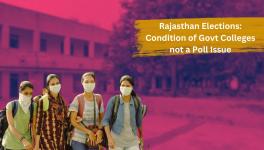Norms Thrown to Winds in Transfer of Teachers in Tamil Nadu
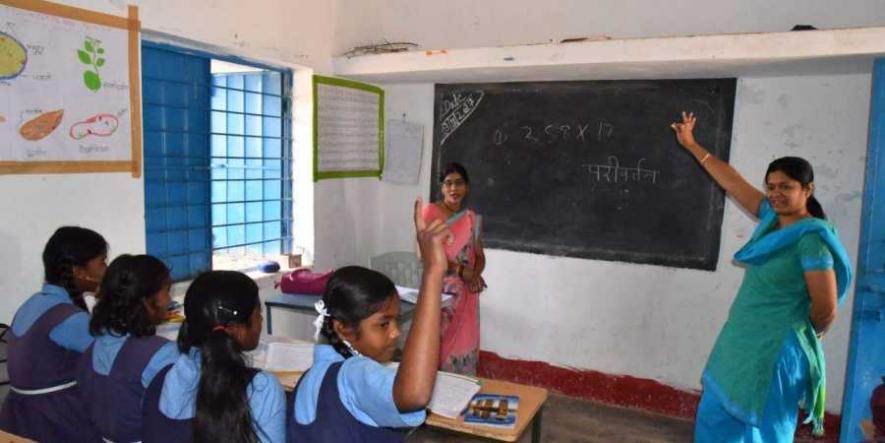
Representational Image. Image Courtesy: New Indian Express
On February 12, 2021, The Times of India carried a news report about the transfer of 31 lecturers from the District Institutes of Education and Training in Tamil Nadu to seven government colleges where about 600 students were to be admitted for the Bachelor of Education course. The news report said the transfer was made for a period of one year.
What is striking is that the DIETs are meant to serve the purpose of training for elementary level education. The BEd degree, on the other hand, is meant to be taught within a university, and students emerging from this course are trained to teach in schools, up to Class 12.
The widely divergent training for these different categories of students was not taken into account when the Tamil Nadu government issued transfer orders to DIET teachers last month.
Dr Jitendra Sharma, who has taught at a government BEd institute in Rajasthan, said that he is unable to comprehend the rationale for this transfer. “There are no norms that allow for such a transfer. I’m curious to know how this happened, and what the government will do if this is challenged in court,” he said.
DIETs are the nodal agency for providing academic and resource support for universalising education, and cater particularly to elementary level education. The DIETs were set up with funds from the Centre after the adoption of the National Policy on Education, 1986.
The DIETs were meant to aid in professionalising pre-school education, so district authorities had the wherewithal to offer education of a high standard to children beginning their schooling. Provision is also made for training of personnel by the National Council for Education Research and Training, through short-term courses. Teachers were encouraged to be part of the larger community, and to seek support from parents in their endeavours.
Music, movement and dance, puppetry, crafts and other forms of expression are also often incorporated into the training offered to teachers by the DIETs.
What the TOI report makes clear, though, is that there was a huge shortfall of teachers in the seven government colleges where students were to be enrolled for the BEd course. The National Council for Teacher Education, the body set up in 1993 mandated to ensure that norms are followed in teacher education institutions, had refused to allow admission into these colleges, citing lack of staff.
There was urgent need to fill vacancies in order to keep the academic programme running – it appears that as the Model Code of Conduct came into effect and the government could not make the necessary recruitment in time, the transfer of teachers from the DIETs was made as a stop-gap arrangement.
Also read: In Rajasthan, Congress Goes Against Own Manifesto in ‘Fixing’ Teachers’ Training Colleges
However, this move will only increase the shortage of staff at the DIETs, and cause them to function less than optimally. Even earlier, after National Council for Teacher Education (NCTE) noted the shortage of staff, 18 teachers were transferred from government arts and science colleges to colleges of education.
In attempting to fill vacancies at the education colleges, however, the government only pushes into crisis the institutes from where teachers are being “borrowed” – also, the temporary nature of these appointments will leave teachers less likely to invest in learning for their new role.
What was paramount, however, was keeping the BEd programme at the government colleges functional – any disruption of that may have proved expensive, given that the Tamil Nadu Assembly elections are scheduled from April 6, 2021.
There are seven government colleges offering BEd programmes, and several of them seem to be functioning without the requisite faculty strength. The Government Teacher Education College at Saidapet, Chennai, for instance, renowned as the oldest teacher training institute in the country, has an assistant professor functioning as the principal in charge. The number of teachers shown on the website does not accord with the norms laid down by the NCTE. Although it offers MEd courses, it does not have professors or associate professors, as necessary under the norms for such institutes.
Dr Jitendra Sharma, concerned about the blatant violation of norms, filed a Right to Information application with the NCTE after reading the newspaper report of February 2021. He asked to be provided attested copies of documents through which the NCTE got to know of the shortage of staff at these institutes; documents to show action taken to correct the problem of staff shortage; documents proving that the allocation of staff from DIETs to these institutes had been approved; and documents showing that the institutes could admit students once these transfers were made.
Also read: India’s Right to Education is a Failing in Reality
NCTE responded to this application stating that the information sought pertained to “different voluminous regulatory files” which could not be provided in writing – the applicant was thus instructed to appear in person and inspect the files at the office of the NCTE. Dr Sharma, however, lives in Jodhpur and it would be a task for him to travel to Delhi just to view these documents.
Meanwhile, at least for one year, there is likelihood that students enrolled at government institutes in Tamil Nadu for the BEd degree would be taught by teachers poorly qualified for the task.
The problems with teacher education in India, though, are not recent. Education is seen as the tool of the development of consciousness and the reconstruction of society. Teachers are vital to the achievement of this ambition, and a need was felt for vastly expanding the force of trained teachers in India – till 1993, there were only 1,500 teacher education centres in India; after the formation of the NCTE in 1993, the number of institutes rose significantly.
Nearly 90% of the over 15,000 teacher training institutions in the country are privately owned, and several of them operate only to sell degrees that enable students to apply for jobs as teachers. Many of these institutes have no qualified faculty; in several, no classes were held. As Anurag Behar, CEO of the Azim Premji Foundation has chronicled it, the system of teacher education has remained mired in corruption, controlled by powerful interests.
Also read: A Not So 'National' Education Policy
In 2011, the Supreme Court took suo motu cognisance of the situation and set up the Justice Verma Committee, which submitted a report recommending changes in the teacher education regime in 2012. It held that teacher training institutions should not be stand-alone bodies but located within the higher education system, providing for a longer course of study; there should also be a transparent procedure to test candidates for entry to these courses.
Implementation of these recommendations has remained uneven, complicated by the fact that over 90% of the institutions are in the private sector. The problem of education reform that is not backed by research endures.
Meanwhile, a new education policy was announced in July 2020, which provides that by 2030 a four-year integrated BEd degree would become a necessary qualification for entry into a teaching career.
Also read: Fiasco of New Education Policy
To understand a better functioning system of teacher education, one needs only to turn to Finland, where the minimum qualification to be a teacher is a Master’s degree – alongside the degree, those wishing to be teachers are given training within classrooms, combining theory and practice – the teacher training accounts for only 20 credits, out of a total of the 300-credit Master’s degree.
The important difference is how the teacher’s profession is valued in the two countries. In Finland, a teacher is an expert, just as much a professional as a doctor or lawyer. In India, school-level teaching is not professionalised. During the lockdown in 2020, some private schools were so starved for funds that they paid teachers in rations.
(The author is a freelance journalist based in Pune.)
Get the latest reports & analysis with people's perspective on Protests, movements & deep analytical videos, discussions of the current affairs in your Telegram app. Subscribe to NewsClick's Telegram channel & get Real-Time updates on stories, as they get published on our website.











